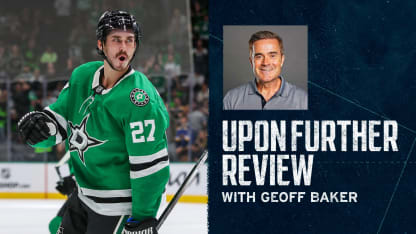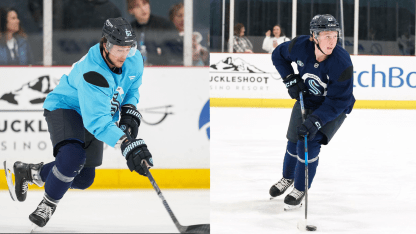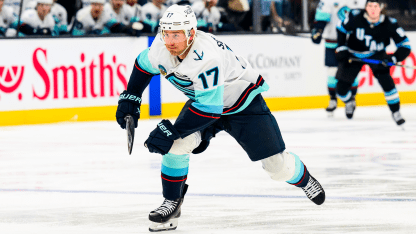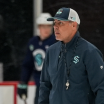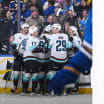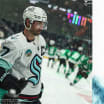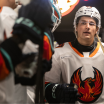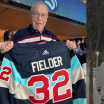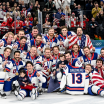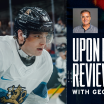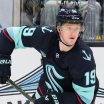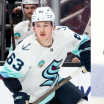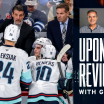One theme keeps coming up time and again whenever the Kraken make a player acquisition: The importance of creating competition in training camp this fall.
Kraken general manager Jason Botterill even sounded apologetic this week after realizing he’d repeated the theme multiple times in the same media scrum session. He’d already brought the competitiveness topic up on three prior occasions in an eight-minute span before raising it a fourth time.
“I hate to keep bringing it up,” he said, chuckling, as he discussed the general types of players the Kraken have acquired this summer on a roster getting somewhat crowded at certain positions. “But to me, there’s competition and that’s what we really want.”
Botterill isn’t the only offender when it comes to uttering the “C” word. New head coach Lane Lambert has preached the need for competition on all four forward lines and up-and-down the roster in general since the day he was hired back in April.
“I think that’s what Lane (Lambert) is realizing and he’s going to really reinforce in training camp,” Botterill said. “It’s that…it’s imperative that we’re a four-line team. And that’s going to be our competitive advantage. We may not have that lead star player at the top end. But we need to find that more competitive edge up and down the lineup.

